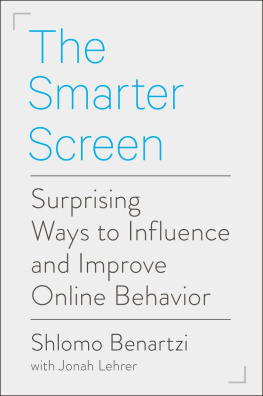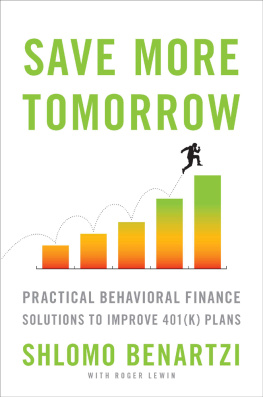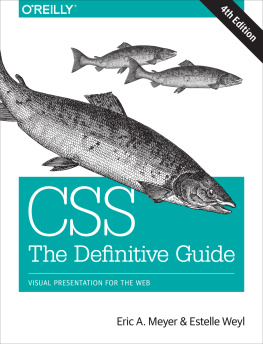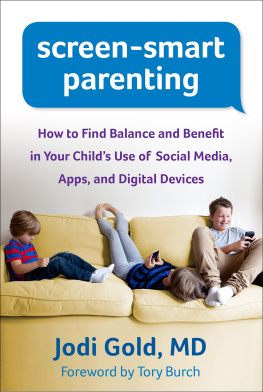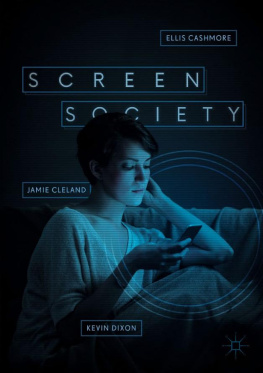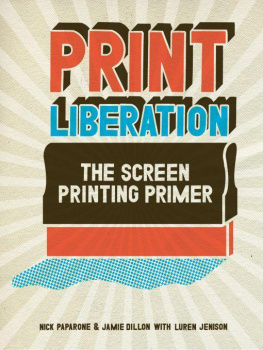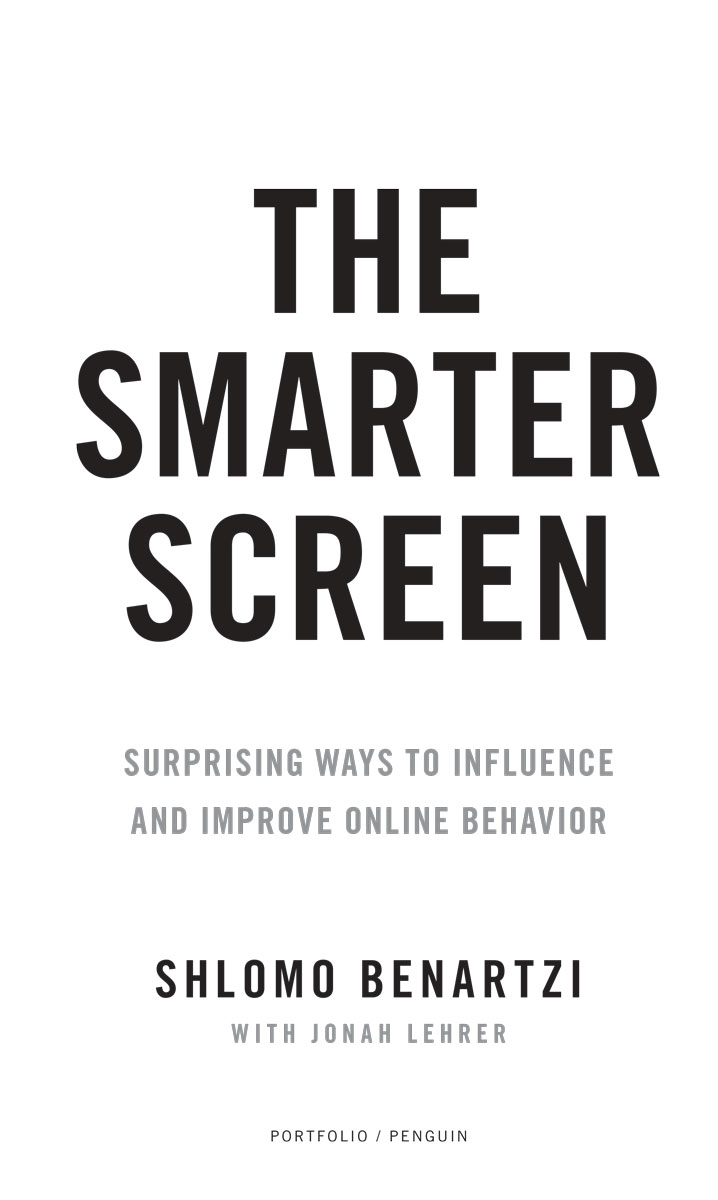Penguin supports copyright. Copyright fuels creativity, encourages diverse voices, promotes free speech, and creates a vibrant culture. Thank you for buying an authorized edition of this book and for complying with copyright laws by not reproducing, scanning, or distributing any part of it in any form without permission. You are supporting writers and allowing Penguin to continue to publish books for every reader.
ACKNOWLEDGMENTS
This book would not exist without the help of many people. I benefited from huge amounts of feedback, both during the development of the ideas in this book and during the writing process. First, I was incredibly fortunate to get access to many brilliant academics, scientists, and colleagues, who were kind enough to read various drafts of the chapters and offer their insights and comments. Im very grateful to Peter Ayton, Maya Bar-Hillel, Tibor Besedes, Saurabh Bhargava, Barbara Fasolo, Gavan Fitzsimons, Craig Fox, Dan Goldstein, Noah Goldstein, Michael Hallsworth, David Halpern, Hal Hershfield, Eric Johnson, Yaron Levi, George Loewenstein, Katy Milkman, Daniel Oppenheimer, Katharina Reinecke, Elena Reutskaja, and Philip Tetlock.
A few friends deserve special mention, as they devoted many hours to the book and improved it in countless ways. If it werent for David Faro, John Payne, and Richard Thaler, The Smarter Screen would be far less smart.
I was also lucky enough to get valuable input from many friends in the industry. A big thank you to David Collyer, Udo Frank, Bill Harris, Thomas MacNeil, Charlie Nelson, Cathy Smith, and Matt Stewart. Danny Kalish read every chapter, often more than once, and offered many important insights that led me in new directions.
It was crucial to me that this book be as accurate as possible. Steve Shu, my very good friend, spearheaded the fact-checking process. In addition, Im very grateful for the time and diligence of Jolie Martin, Amit Runchal, Namika Sagara, and Hadas Sella. They combed through every citation and double-checked every fact and quote. All remaining mistakes are my own.
This book was guided by a skilled team at Portfolio. I owe a big thank you to Adrian Zackheim for seeing the potential in a book about behavioral economics in the digital age. And my editor, Niki Papadopoulos, helped ensure the book was as readable and engaging as possible.
I want to thank my collaborator, Jonah Lehrer, an amazing friend and brilliant writer. We had a great time working on this book together. It could never have been written without him.
Last, but definitely not least, I want to thank my family. Shalom, my dad, and Leah, my mom, for everything they taught me. My wife, Lesli, and Maya, my little girl, put up with many late nights and countless discussions about the material in this book. They inspire me every day.
INTRODUCTION
On October 1, 2013, the United States government launched a new Web site, www.healthcare.gov, that was designed to help people choose health insurance. In essence, the site was a shopping portal, allowing consumers to compare prices and features on all of the insurance plans available in their local area. Because the government hoped to sign up millions of uninsured Americans, they decided to rely on the scale of the Web.
While most of the media coverage of the Web site centered around its glaring technical glitches, very little attention was paid to a potentially far more important issue: Did the Web site actually help consumers find the best insurance plans? Given the reach of Obamacare, even seemingly minor design details could have a huge impact, influencing a key financial decision in the lives of millions of Americans.
Unfortunately, research suggests that most people probably made poor insurance choices on the Web site. A study conducted by Saurabh Bhargava, George Loewenstein, and me demonstrated that the typical subject using a simulated version of healthcare.gov chose a plan that was $888 more expensive than it needed to be.
Can this problem be fixed? The online world offers us more alternatives than ever before: the average visitor to healthcare.gov was offered forty-seven different insurance plans, while Zappos.com features more than twenty-five thousand womens shoes. But how should Web sites help us choose better?
On the morning of February 21, 2010, an American Predator drone began tracking a pickup truck and two SUVs traveling on a road near the village of Shahidi Hassas in southern Afghanistan. As the drone followed the vehicles, it beamed a live video feed to a crew of analysts based at Creech Air Force Base outside Las Vegas.
Such intelligence is now a staple of modern warfare. The CIA used drones to gather intel on Osama bin Ladens hideout; the Israeli Defense Forces flew dozens of unmanned aircraft over Gaza during the recent conflict; the United States Air Force accumulated more than five hundred hours of aerial video footage every single day in Afghanistan and Iraq.
This flood of information creates an obvious problem: someone has to process it. Unfortunately, the evidence suggests that drone crews are often overwhelmed by the visual data. One study, led by Ryan McKendrick at George Mason University, showed that people simulating the multitasking environment of drone operators performed worse on an air defense task;
Thats what happened to the analysts tracking those vehicles in southern Afghanistan. According to an internal military investigation, the cubicle warriors in Nevada couldnt handle all of the available information as they toggled back and forth among the video feed, radio chatter, and numerous instant messages. As a result, they failed to notice that the truck and SUVs were actually filled with civilians. And so the drone operators gave the order to fire, unleashing a barrage of Hellfire missiles and rockets. Twenty-three innocent people were killed in the attack.
How can we make such tragedies less likely to happen? What should the Air Force and CIA do to minimize the risk of blind spots on screens? And how can other organizations, from financial institutions to hospitals, deal with the same problem of digital information overload?
On December 14, 2013, Jessica Seinfeld used the Uber app to drop her children off across town at a bar mitzvah and a sleepover. Uber had provided a valuable servicehelping people get home in a bad stormbut had also angered a lot of customers. Its never a good sign when your company is the reason people are tweeting the hashtag #neveragain.
The surge pricing problem is indicative of a more common digital hazard, which is that people often think very fast on screens. Uber customers, of course, benefit from this quick pace, as the streamlined app makes it easy for people to book rides with a few taps of the thumb. However, when surge pricing is in effect that same effortless ease can backfire, since consumers book rides on their phone without realizing how much the rides are going to cost.
How should Uber fix its app? Is there any way to help consumers avoid online decisions theyll soon regret?
These three stories illustrate a few of the many ways in which the digital revolution is changing the way we live, from the analysis of military intelligence to the booking of taxi rides. They reveal an age in which we have more information and choices than ever before, and are able to act on them with breathtaking speed. But these stories are also a reminder of the profound challenges that remain. We have more choices, but we choose the wrong thing. We have more information, but we somehow miss the most relevant details. We can act quickly, but that often means we act without thinking.

